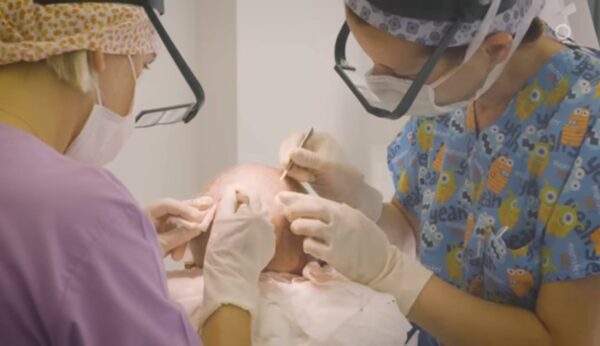One of the most common social problems today is addiction. As addiction affects people of all ages, unfortunately it also traps children and destroys their life and health. Once you are addicted it is very difficult to get rid of. Especially in certain periods, children and young people are quite unprepared and vulnerable to addictive substances. For the health and future of our children, ourselves and society, we must be informed about addiction and we must do our best to help addicts.
Addiction is a chronic brain disease that is characterized by the compulsive use of a substance or behavior despite the negative consequences. Substance abuse refers to the excessive use of drugs or alcohol, which can lead to physical and psychological dependence and addiction. People with addiction often continue to use the substance or engage in the behavior despite experiencing negative consequences, such as financial problems, relationship difficulties, and health issues. Substance abuse can also have serious health consequences, such as liver damage, heart disease, and mental health problems. Treatment for addiction and substance abuse typically involves a combination of therapy, medication, and support from friends and family.


Substance Abuse : substance abuse is the use of substances that adversely affect body function or health, and the inability to stop using these substances, even though they are damaged. In short, it can be said that free will and decision-making disappear and completely fall under the influence of addiction. Substance abuse is a disease. The process after getting rid of addiction is called staying clean. No matter how long the period of staying clean is, there is a possibility of becoming addicted again, and if it is started again, the process will go back to the beginning and the person will go back to the period when the addiction was most intense.
Addiction occurs as follows: the cell needs substances such as water, vitamins, minerals, carbohydrates to maintain its life. When we feel the lack of these substances it needs, our brain gives a command to meet our needs. but if a foreign substance wants to enter the cell, the cell will not accept it. For example, as many people know, we cough when we smoke for the first time. Coughing is a reaction our body develops to expel foreign matter. But if we are constantly exposed to foreign matter, after a while the body does not react. Thinking that the cell cannot live without the foreign substance we are exposed to, it wants this wish to be met, just like our vital needs.
Addiction symptoms are called withdrawal symptoms. Withdrawal symptoms are divided into physical symptoms and mental symptoms.
Physical withdrawal symptoms : muscle pain, weakness, sleep disturbance, speech disorder, loss of sensation, difficulty in breathing and tremor.
Mental withdrawal symptoms : lack of attention, tendency to violence, nervous, anxious, mood changes, unrealistic thoughts and feelings.
Addictive substances affect the pleasure center of the brain and make you feel the need to use it constantly. But it can never be enjoyed as much as the first time you use it. In order to experience the same pleasure again, the dose and frequency of use should be increased. As the frequency and dose of use increase, the addiction becomes stronger. When the effect of the substance wears off, the person starts to feel more unhappy and depressed in his normal life and therefore wants to use the substance again.
The age with the highest substance addiction is between 15-24. For this reason, we should protect our children and inform them about the harms of substance abuse. When we look at substance addicted individuals, they are mostly seen in poor and unemployed regions. Family structure is one of the important factors in substance abuse. Divorced parents, apathetic, neglectful and abusive family members increase the risk of substance abuse.
The reasons for starting substance addiction are imitation, peer environment and pressure, desire to belong and be accepted, pretense, curiosity and ignorance. Many people think that their will is strong and that once they try, they won’t be addicted, but the reality is very different.
Changes in three different dimensions are observed in substance addicts: social change, behavioral change and change in physical appearance.
Social change : It can be observed as the desire to be alone, a change in the circle of friends, difficulty in adapting to the environment and disconnection from the society.
Behavioral change : Decreased self-confidence, introversion, sudden mood changes, lying, borrowing, violating the law, self-harming behaviors can be observed.



Change in physical appearance : constriction-enlargement of the pupils, redness of the face, runny nose, sudden weight loss, indifference in care, constant fatigue, carelessness in clothes, scars on the body. When physical changes begin to be observed, it can be said that the process has progressed a lot and the fight against addiction has reached a difficult stage.
It takes about 10 days to fully recover from physical dependence on the addictive substance. But it is not easy to get rid of one’s social and psychological effects. At this point, family and environmental support is very important. In addition, professional support and addiction rehabilitation centers will be very useful. In many countries of the world, rehabilitation centers against addiction, doctors and psychologists provide services free of charge. If you also have a substance abuser in your environment or family, direct them to the nearest rehabilitation center for professional support.
You should back your normal life,family and friend when addiction is not very strong otherwise its will be more difficult for you and your close environment. If you continue addiction there is only one end of addictions :suffering with pain and dead. Please get help and defeat addiction problems.
What Should Families Do About Substance Abuse?
Substance abuse can have serious consequences for both the individual struggling with addiction and their loved ones. If you are concerned about a family member who is struggling with substance abuse, there are a few things you can do to help:
- Encourage them to seek help: Offer your support and encouragement for them to seek treatment, whether it be through therapy, a support group, or a rehabilitation program.
- Educate yourself: Learning about substance abuse and addiction can help you better understand what your family member is going through and how to support them.
- Set boundaries: It is important to set boundaries and establish clear expectations for how you will interact with your family member who is struggling with substance abuse. This may include setting limits on financial assistance or not allowing them to use drugs or alcohol in your presence.
- Take care of yourself: Caring for a family member with substance abuse can be emotionally and physically draining. Make sure to take care of your own needs and seek support from friends, family, or a professional if needed.
- Consider an intervention: If your efforts to encourage your family member to seek help have been unsuccessful, you may want to consider organizing an intervention with the help of a professional interventionist.
It is important to remember that substance abuse is a disease, and your loved one will need support and understanding as they work towards recovery.

